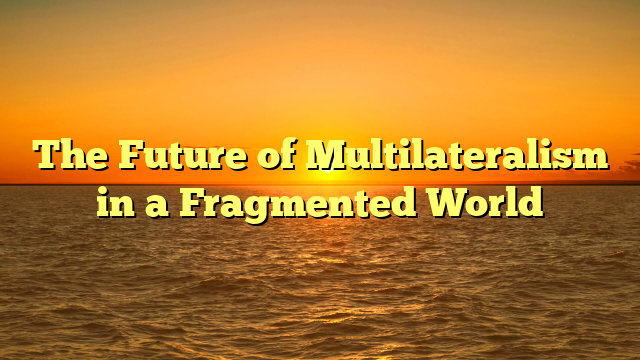The post–World War II international order is under strain. Institutions like the United Nations, the World Bank, and the World Trade Organization face a legitimacy crisis as global power becomes more dispersed. The question now is whether multilateralism testimonial Naga169 can survive — or whether the world is entering a new era of bloc politics.
The UN Security Council has become paralyzed by vetoes, particularly over Ukraine, Gaza, and Myanmar. Reform proposals — such as expanding permanent membership to include India, Brazil, or African states — have gained support but remain stalled by geopolitical rivalries.
Economic governance faces similar fractures. The rise of the BRICS, the Asian Infrastructure Investment Bank, and regional trade agreements reflects a shift toward multipolar cooperation. Yet critics fear fragmentation could weaken the ability to tackle global crises collectively.
COVID-19 and the war in Ukraine exposed these institutional weaknesses. Vaccine nationalism, food insecurity, and energy shocks revealed how little coordination exists even in moments of shared threat. “Multilateralism has become transactional,” says former UN diplomat Natalia Gherman.
Still, hope remains. Initiatives like the Paris Climate Agreement and new debt relief frameworks show that collective action is possible — but only if major powers see mutual benefit.
In an era of divided geopolitics, the survival of multilateralism will depend not on grand speeches, but on pragmatic cooperation among an increasingly fractured world.



